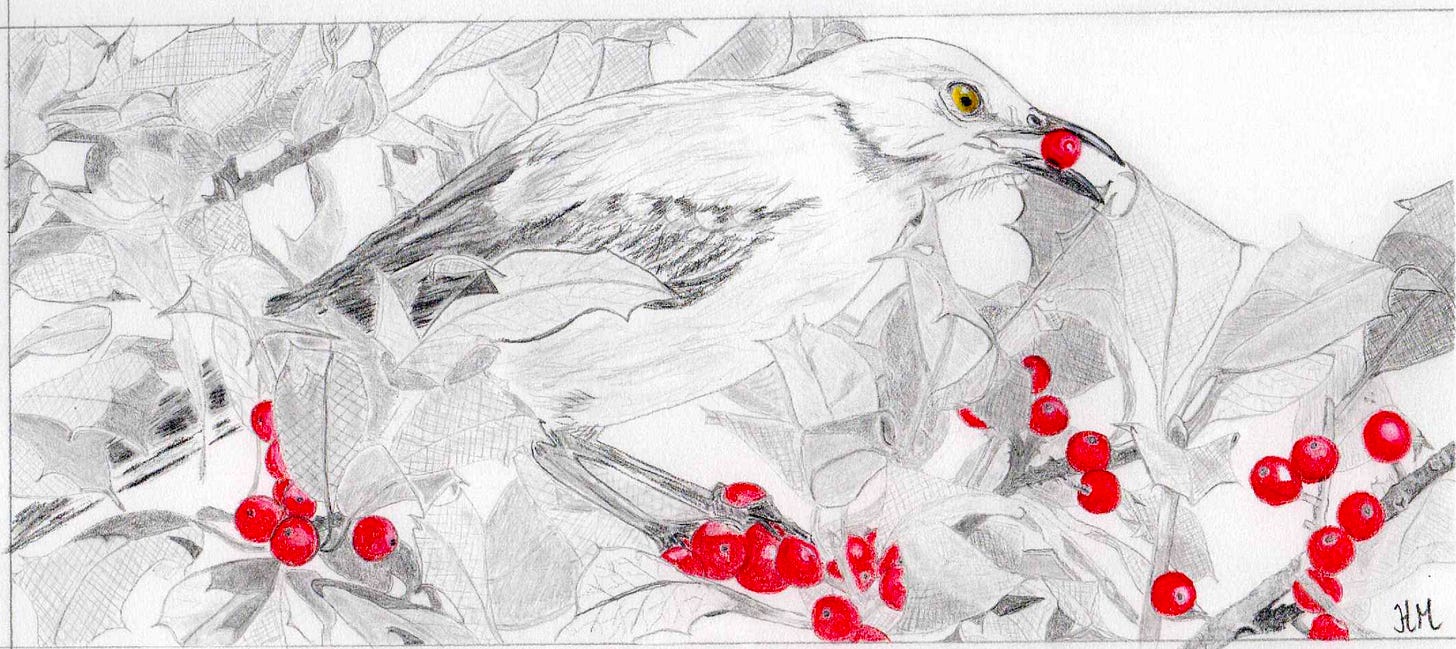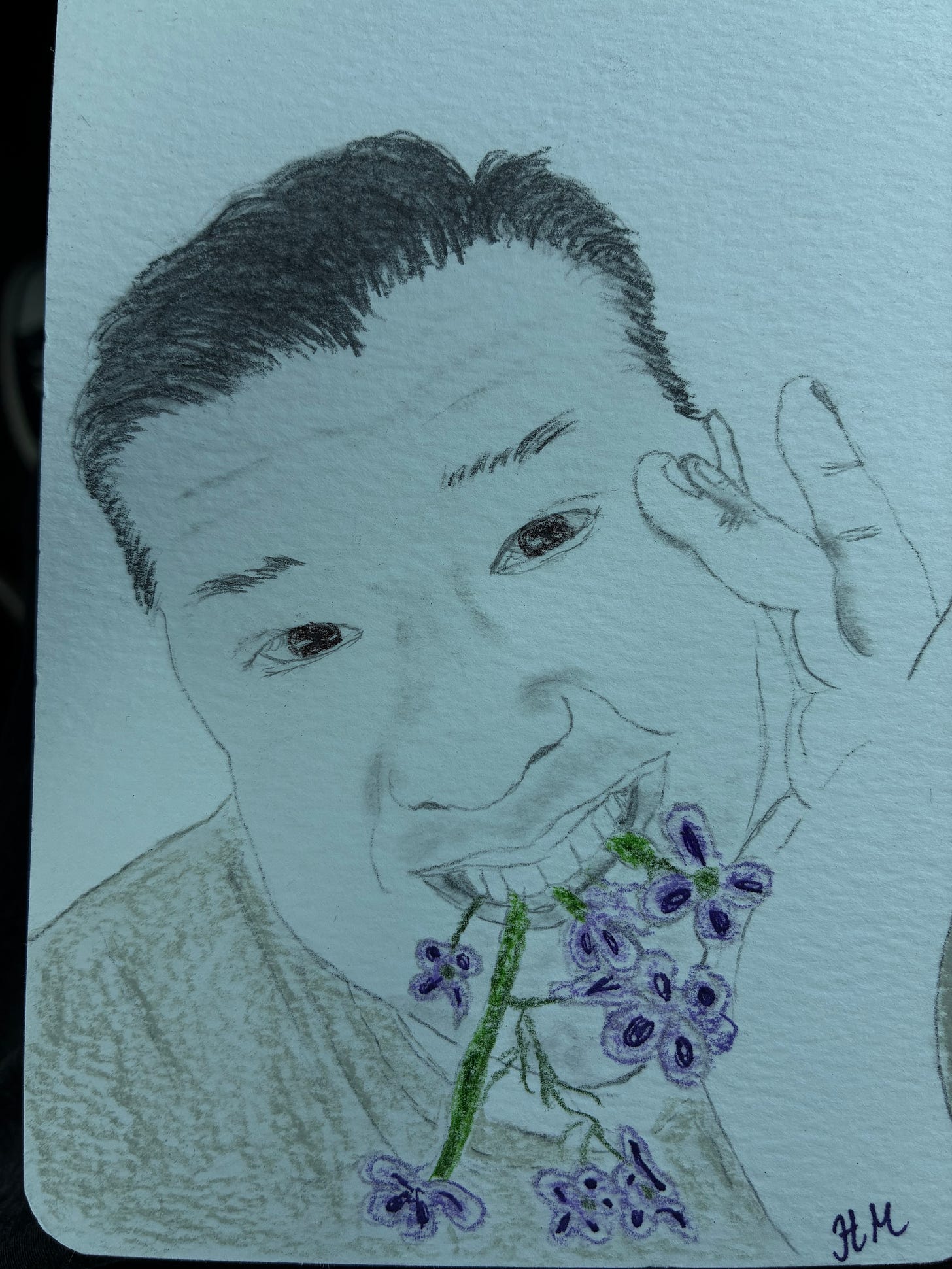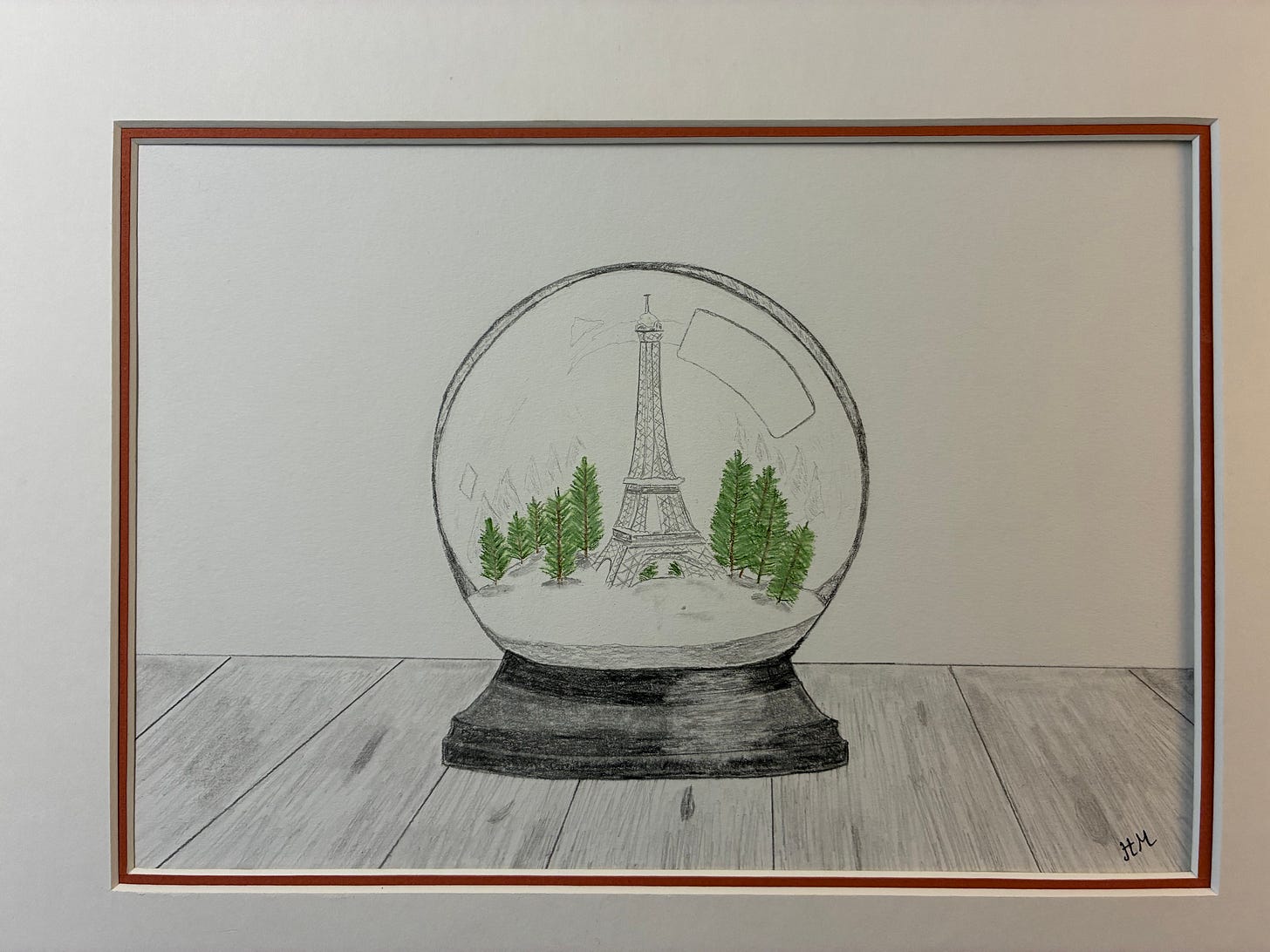A Long Overdue Declaration
I spent years finding the courage to say this....
One of the lasting damages of social media1 is this: no matter how hard I try, I can’t unlearn my theory of mind for the reader.
I can’t pretend some reactions aren’t entirely predictable.
That’s why most of what I publish falls into the “write to clarify my own thoughts” category.
Writing for that purpose and just — sometimes, anyway — sharing it with you? That sidesteps the mental recursion loop—my analysis of your analysis of my analysis (…of my analysis).
But this isn’t one of those.
This is something I’ve understood—deeply, intimately—for a long time.
I’ve just been too scared of the reaction to say it.
I’m saying it now, for reasons I don’t understand and have chosen not to interrogate.
So, here it is.
“Talent,” as a concept, is the most overrated bullshit imaginable.
It’s a mental shackle—usually fastened by well-meaning parents or teachers, though sometimes by jealous or dysfunctional ones. They want to spare a child from failure or heartbreak, but the “talent” myth creates the very problem they think they’re preventing.
There’s a story about baby elephants in captivity: when they’re young, they’re chained by the leg to a stake in the ground. They try to break free, but they’re too small and too weak. Eventually, they stop trying.
By the time they’re full-grown (more than strong enough to snap the chain)? By then, they don’t even test it. They’ve internalized the limit.
That’s what the talent myth does.
The truth is this: you can reach an astonishing level of skill in almost anything through sustained, patient effort—if you’re willing to go slowly, and to suck at it for a long time before you get good.
That’s it.
That’s the secret everyone keeps mistaking for the magic of “talent.”
No hidden gift. No chosen-one origin story. Just this.
Boring? Yes. Unbelievably simple? Yup.
True?
Indisputably.
This Isn’t Humility
Let me say this clearly, even though I know exactly how it might land.
What I’m about to say risks sounding like that most unbearable of internet genres: performative humility. You know the type. “Wow, I can’t believe I got nominated alongside these incredible people 😭 I’m literally just a potato in human form!!”
Yeah. That.
I hate it too. Viscerally. You haven’t truly hated a thing until you’re a deaf girl, paranoid about her eyes, and still can’t stop rolling them so hard you risk dislocating something.
Which is part of why it’s taken me years to figure out how to say this without triggering that same secondhand cringe I feel when I see someone else doing it badly. I’ve written versions of this and deleted them.
I’ve tried to sneak it in sideways. It always sounded wrong.
Like a flex pretending to be a confession, or a confession pretending to be a flex.
Either way, I couldn’t stand it.
And seriously? Um…well….nothing has changed.
I still don’t know how to say it right, even now.
But I’m saying it anyway, for reasons I don’t fully understand and haven’t tried to unpack.
Here’s how I know the talent myth is horseshit.
I’m pretty good at math and I’m pretty good at drawing. Not genius level. Not PhD-in-math or quit-my-job-and-live-off-commissions good.
But good enough that people notice. Good enough to solve number theory problems from advanced textbooks and design mathematically robust custom metrics as a data scientist, and good enough to sell original drawings from time to time.
Good enough that I’ve had people assume I must’ve just always been this way.
I wasn’t.
What got me there was effort. Determination. Patience. And an unglamorous, unyielding willingness to suck at something for a long time without quitting.
That’s literally it.
That’s the whole, entire story.
Talent had fuck-all to do with it.
And the reason I need to say this, finally, even clumsily, is because the myth of talent isn’t just wrong—it’s damaging.
It’s a gatekeeping mechanism disguised as a compliment. It flatters the “gifted” while quietly telling everyone else not to bother.
It turns persistence into an afterthought, struggle into a red flag, and curiosity into a dead end — unless, of course, you win the lottery of hitting all our cultural bullshit targets in exactly the right way and show early promise.
What do I mean by cultural bullshit targets? You have to show promise — and not just any promise, but the kind that’s visible in just the right way, at just the right time, to exactly the kind of adult who knows how to nurture it—and is in the mood to bother.
If you don’t have the lottery-win-luck of checking all those boxes, the world shrugs and moves on.
And I’ve seen it stop people.
Brilliant, amazing people.
People who could’ve made or discovered or expressed something astonishing—if they hadn’t believed, too early, that they weren’t “meant” for it.
So yeah. I’m saying it now.
Badly, probably. Late, definitely. But it needed to be said.
Why I’m Talking About Drawing
I’m not going to bore you with the importance of mathematics, why the “math person” idea is bullshit, or tell you the story of how I built up that skillset over time. If you’re interested, I’ve already written the first sixteen parts of a series taking you through the very same journey to understanding mathematics that I took — How to Not Suck at Math. Go there.
This one’s about drawing.
Lately, I’ve had what I guess you’d call a small renaissance—though I don’t know if that’s the right word. Maybe it’s more of a breakthrough.
I found a handful of books and videos that clicked for me, and I’ve been working through them slowly, carefully. For the first time in several years, I can feel my skills leveling up in a way that’s visible and satisfying.
It’s become fun. Addictive, almost.
And I’ve got a reason to keep going: starting in September, I plan to sell prints of my work. Not to become a full-time artist or anything—I just want to speed up my journey to paying off my student loans, and drawing is something I can do that people seem to like. So drawing is on my mind a lot lately.
Here are a few recent pieces:
They’re not perfect, but they feel solid to me now.
I look at them and think: yeah, that’s pretty close to what I meant to do.
But here’s the thing— years ago, even one of these drawings would’ve seemed completely out of reach. Like actual witchcraft.
If you'd shown me a piece like this and said you’re going to be able to do that, I would’ve laughed, then cried, then stared at you suspiciously.
Because back then, I believed in “talent.”
As a kid, I couldn’t even draw decent stick figures.
I was jealous—viscerally, painfully jealous—of people who could draw well.
It felt like this sacred, unreachable ability some people were born with and the rest of us just…weren’t.
While working one of my first jobs after I got out on my own, I met a girl who could draw like that. Her portfolio was stunning. Every page looked like magic to me.
When I told her how jealous I was of her “talent,” how I’d given anything if God had liked me half as much as He must’ve liked her, to give her such a thing, she shrugged and told me it wasn’t really talent at all—it was a skill. That didn’t compute at first, so she broke it down for me.
She said: “People who think they can’t draw—especially the ones who really wish they could—almost always try to draw people and things. That’s why they think they’re bad at it. It doesn’t work like that. You have to learn to see lines and shadows first. That’s it. Once you start seeing the world that way, the rest is just practice.”
And something in my brain just clicked.
I tried it—just once, with that mindset—and immediately drew better than I ever had.
Six hours after she said that to me, I had produced something so much better than I had ever produced in my life that it was breath-taking. If I had set of before-and-after pictures to show, I’d bet a kidney that not a single, solitary one of you would guess less than three years of art classes between the two.
But it happened in a few hours. Not because I suddenly became “talented,” but because I had finally been shown how to see.
That shift in perspective was more powerful than any technique or tutorial I’ve come across since.
It got me 80% of the way there.
The rest?
Literally. Just. Practice.
That’s it.
The Part That Matters
If you want to see more of my drawings, they’re over on my Instagram, but that’s not really the point.
The point is that almost everything works like this.
There’s usually a small but crucial insight—one key that, once you find it, unlocks a giant leap forward. And then?
Then it’s just study. Slow, steady, sometimes-frustrating study. Plus a whole lot of practice.
The kind where you suck at first.
The kind where you feel stupid.
The kind where you think maybe you’re wasting your time.
But if you can sit in that discomfort and keep going, the improvement will come.
And that’s why the “talent” narrative is so damaging. It pretends to be a compliment—wow, you’re so gifted!—but really it’s a trap.
It suggests that excellence is preloaded at birth, and if you didn’t get the software package, you’re out of luck.
It tells you not to bother.
Yes, there are prodigies. Yes, once-in-a-generation people exist.
But they’re about as relevant to your own development as the one guy who won the Powerball is to your retirement plan. You don’t build a life on anomalies.
What you can build on—what most people don’t realize they can bet on—is effort.
No, not desperate, perfectionistic effort. Not frantic overnight makeovers.
I do know the difference. I learned what a logarithm was on the day my calculus professor started logarithmic differentiation; that’s how bad my high school mathematics preparation had been.
I know what it is to start from scratch. It’s just effort.
Patient, consistent effort. One tiny skill at a time. One better drawing. One clearer paragraph. One less-wobbly note.
The vast majority of people are capable of so much more than they think they are.
I don’t mean that in a feel-good way—I mean it in a statistically sound, cold hard math kind of way.
Most people have never truly tried.
Not because they’re lazy, but because they’ve already counted themselves out.
Drop the myth of talent, people. Just drop it. Try anyway.
If you want a few tips on getting started, I’ve got those here—but honestly, this isn’t about hacks. It’s about mindset.
And if all this still sounded like the kind of performative humility I can’t stand—the kind that makes me want to puke in a mason jar labeled “authenticity”—and if, for some reason, I went ahead and wrote it today even though nothing’s changed, even though it still sounds exactly like the thing I’ve been too annoyed and too afraid to say for years?
Oh well.
It’s still true.
Edited to add a video of a deaf girl singing better than most people who can hear and attend voice lessons:
So the tick I wrote about was in fact infected — I got anaplasmosis and Lyme Disease from the goddamn thing. A full course of high-dose Doxy, and I’m fine now. I’m way behind on work-work but otherwise okay. And I have a series on the damages of social media that you can read here.








I'm closing the comments because I have work to do and we're now to the point of comments that are either desperate to offer excuses and/or think I'm so stupid that I don't know that IQ is a thing and that people have varying abilities -- people who think that when I said "an astonishing level of skill" I didn't really mean it. I meant "anyone can be Mozart," secretly, so comments advising me of the reality of ability are necessary. And life is too fucking short. I am not on Substack to be advised of things that I expect most five year olds already know. This is partly why it took me years to write this -- people who think of themselves as "talented" cannot bear to let go of the myth and it's crucially important to them to make sure that anyone who challenges it is regarded--and spoken to as if they were--a moron. Alas.
Bravo, and amen.
It's been my experience that "talent" or "being gifted" looks an awful like practicing for six hours every day for a decade.